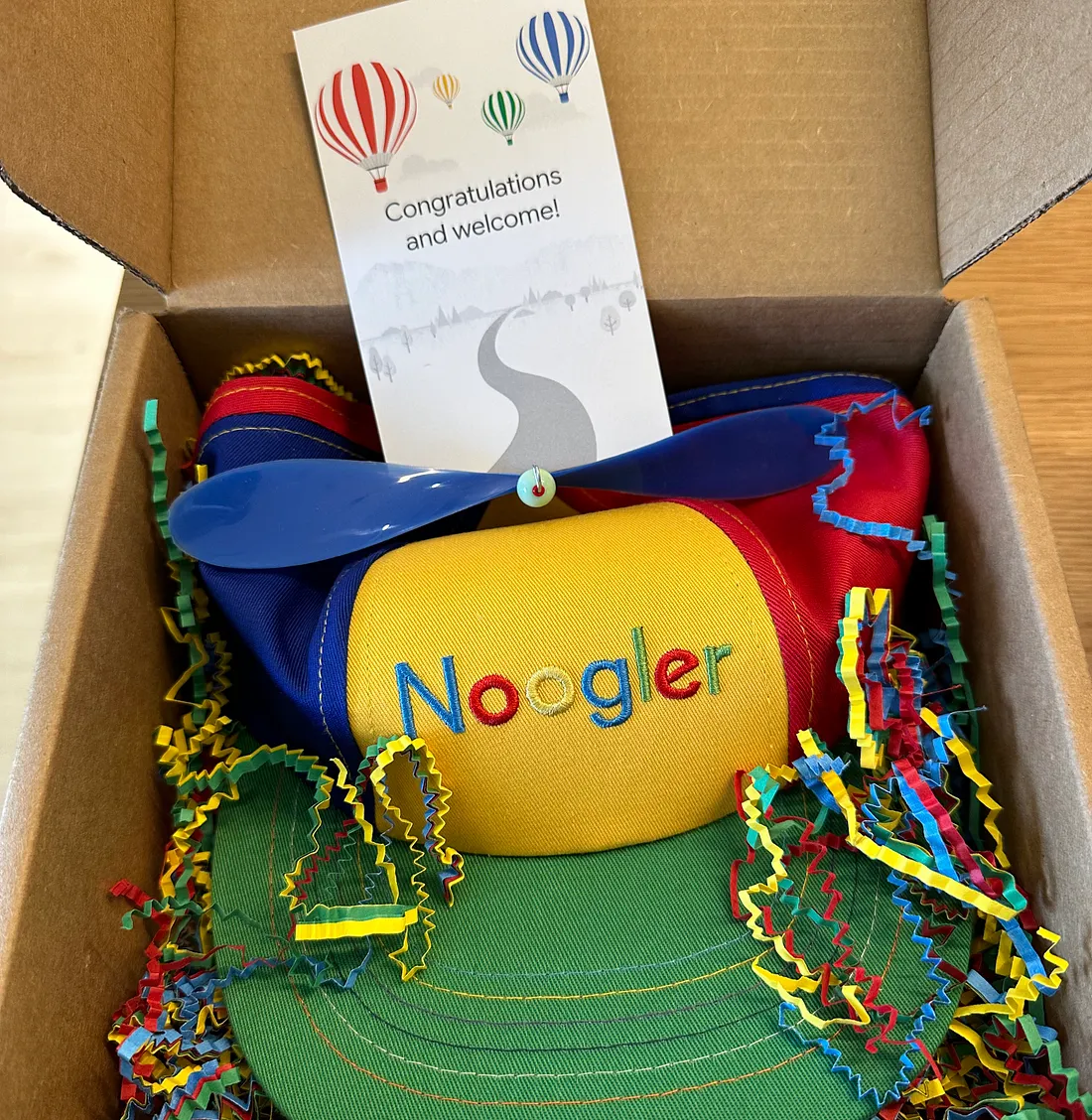Reflections After Three Months as a Google Software Engineer
This article is migrated from Medium and translated by Gemini pro 2.5.
Making the leap from a small company to a massive one truly feels like a country bumpkin visiting the big city. After fumbling my way through, I’ve somehow passed the probationary period. I figured I’d jot down some of the interesting things about joining Google.
1. Onboarding
Due to the pandemic, the entire onboarding process is remote. About a month before my start date, I started receiving a steady stream of onboarding information, along with a special “Noogler” account. The company calls its employees “Googlers,” and “Noogler” means “New + Googler.”
With this account, I could log into a dedicated onboarding portal. It had a task manager listing everything I needed to do and when it needed to be done. It was so clear that even as a remote new hire, I never really felt lost.
The first part of onboarding was just uploading personal information to the site—basically a full background check. Then, I had to choose my work computer. Although they say “choose,” it seems like recent hires only have Chromebooks as an option. It doesn’t look like switching to a Mac is possible anymore. All I can say is, it’s a +1 for brand loyalty, nothing wrong with that.
The work computer also comes with a physical security key. If you want to access any internal company data, you need both the company laptop and this registered security key. You have to plug it in and physically touch it to unlock access.
So, don’t even think about using your personal computer for work. You won’t be able to get into anything.
The first month on the job was probably the most chaotic period. There are so many courses to take: company values, company policies, tool usage, etc. At the same time, you have to get used to your new computer, meet your new colleagues, and attend all sorts of Noogler-only meetings and welcome parties. And then, there’s the second thing I need to mention.
2. The Information Tsunami
Inside Google, all data is on the internal systems. On the bright side, everything is documented. Most of the time, you can find the information you’re looking for.
I say “most of the time” because there is simply too much information. Some of it is poorly maintained, containing outdated, unusable instructions, and you have no way to be sure. So, you spend a lot of time swimming in this vast ocean of data, and as you swim, it’s easy to forget what you were originally trying to find.
The other thing that was hardest to adapt to at first was the jargon. Google has so many internal terms, and many of them are acronyms. It’s impossible to tell what they mean at a glance. You need to do a massive amount of reading and searching before you can gradually understand what everyone is writing or talking about.
I suspect that even if some internal documents were leaked, outsiders probably wouldn’t be able to understand them. Maybe this is another form of information security?
3. English
Everyone says, “You must have great English to work at an international company.” I’d say yes, but if your idea of “great” is “native-speaker level,” then I’d say you absolutely don’t need to be at that level.
Reading and Writing: Because Google is a massive multinational corporation, you frequently need to communicate with colleagues across the globe. Internal documentation isn’t really region-locked, so about 95% of it is written in English. When you write documentation, there’s a high probability you’ll also be writing it in English. I still remember when I first joined, I stumbled upon a document written in Mandarin and was so happy I had to find my fellow Nooglers to marvel at it.
Listening and Speaking: Most of the meetings I’ve attended are also entirely in English. I remember my first meeting with my own team. Out of more than ten people, almost all were Taiwanese, but there were one or two foreigners who didn’t speak Mandarin. So, everyone just used English for the meeting. Another time at lunch, everyone was chatting in Mandarin, and suddenly a foreign colleague joined the table. The entire table automatically switched to English. It was pretty fascinating to see that for the first time.
So, why do I say your English doesn’t need to be that good?
The truth is, once you pass a certain threshold, you can work comfortably at an international company. But this threshold is, in my opinion, still a huge gap away from a native speaker. Your grammar, vocabulary depth, and accent are nowhere close. But I see many people in high-level management roles who are in the same boat.
Everyone just uses the words they know to piece together their meaning. Pronunciation isn’t a huge focus. As long as you can achieve your goal—that is, you can clearly express your meaning, and you can understand what others are saying, completing an effective communication—then your English is completely sufficient. The rest just depends on whether you have any personal interest in refining it further.
After three months as a Googler, I’ve gradually adapted to the life here and am still often amazed by the various perks. But perhaps this is also why the bar to get into Google is so high.
If I have more interesting things to share in the future, I’ll be back.
